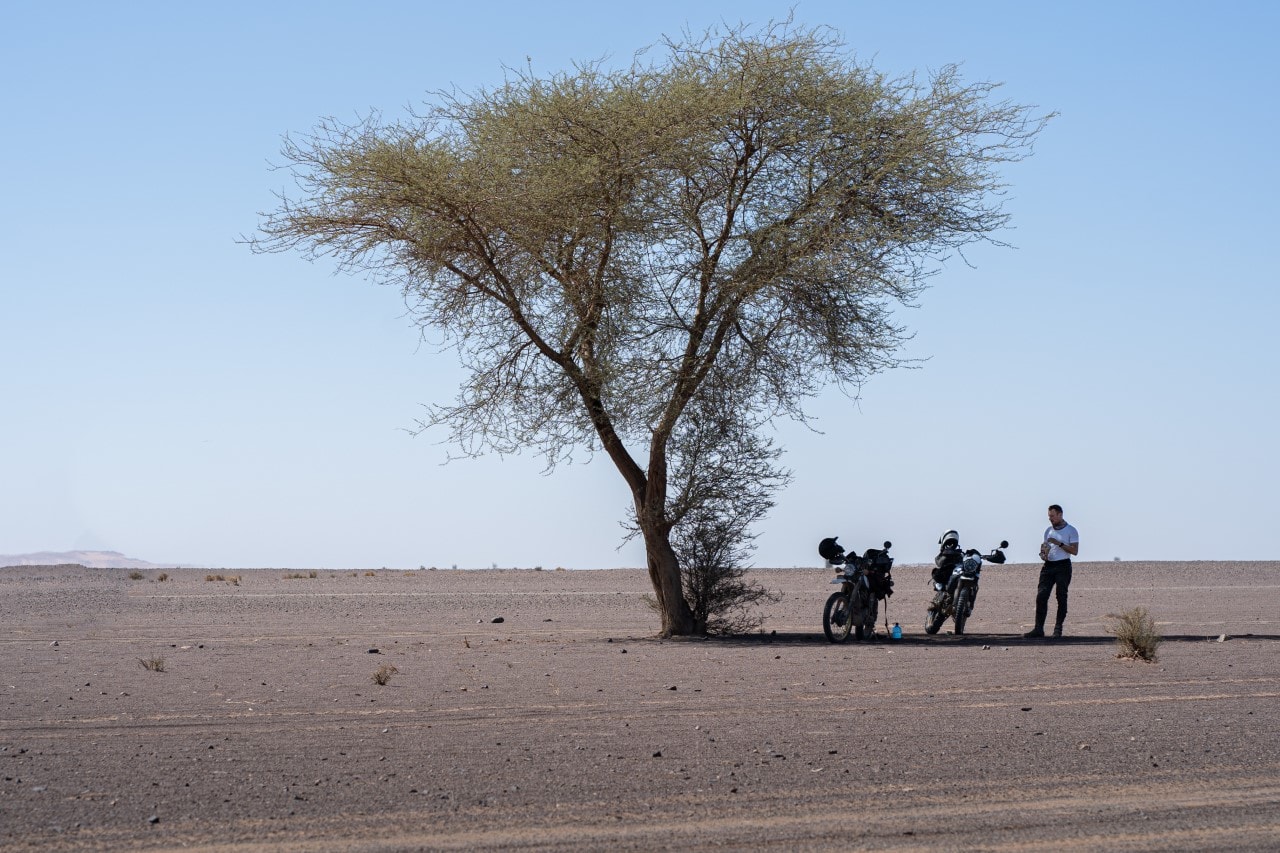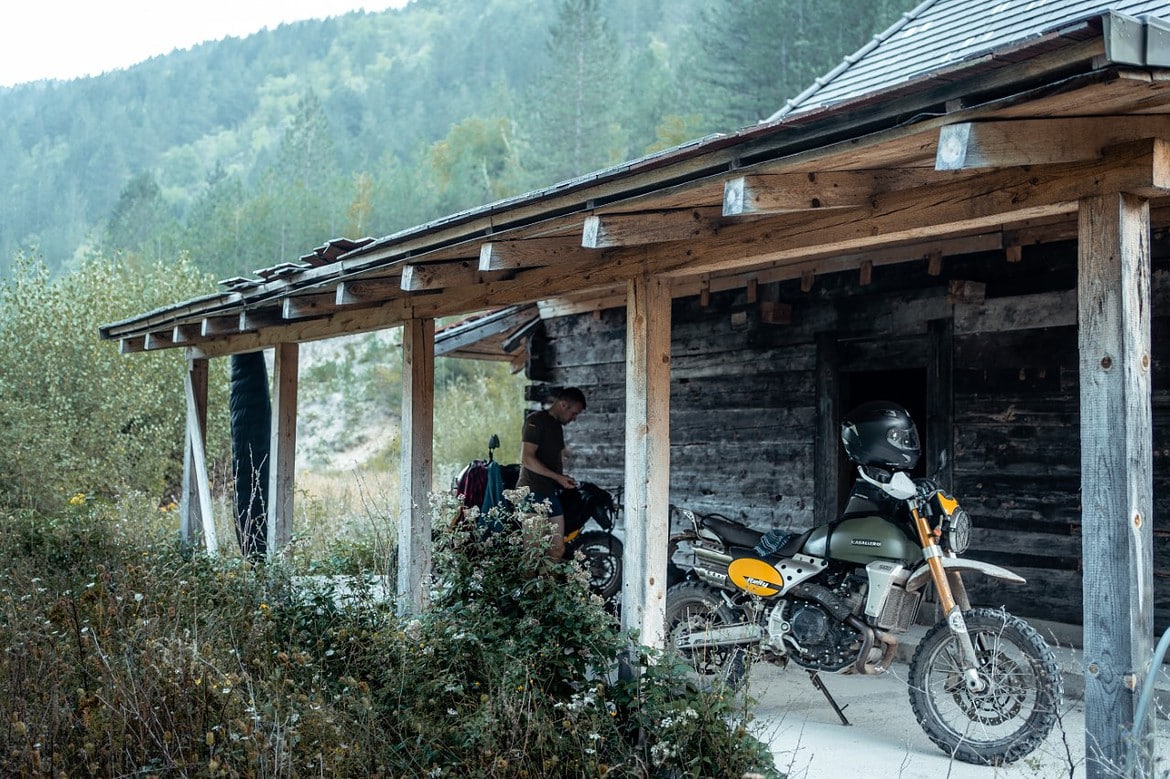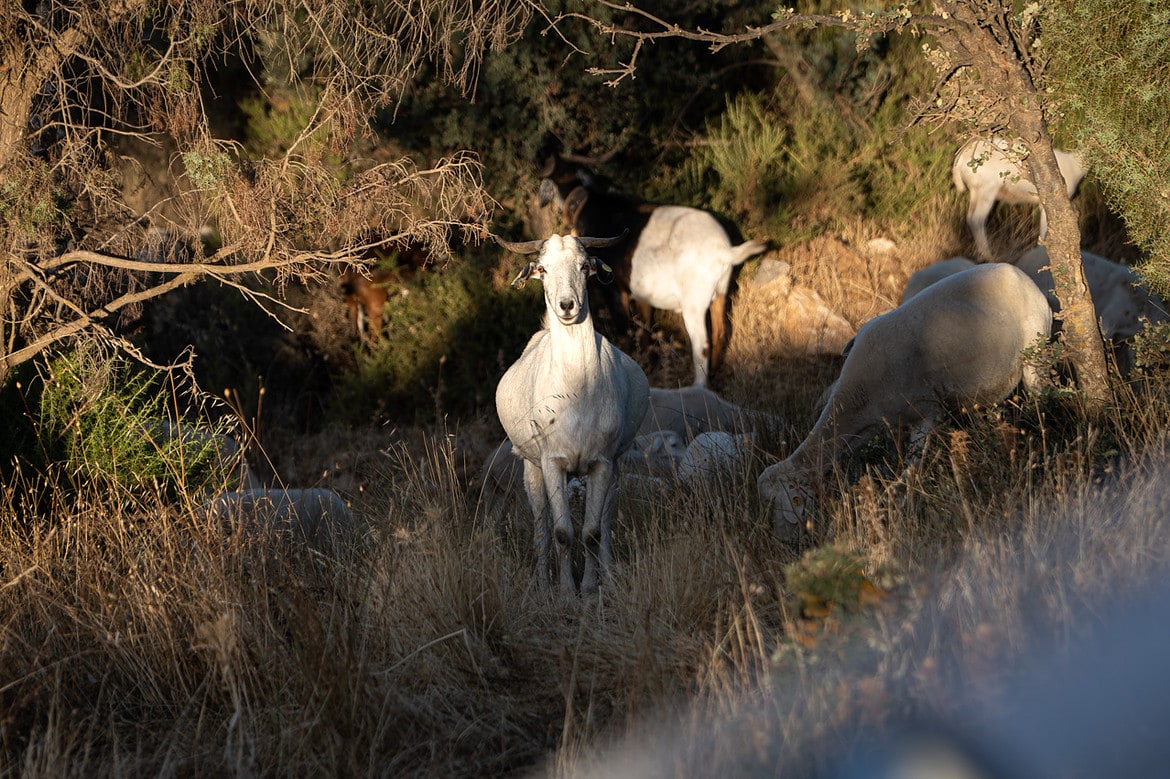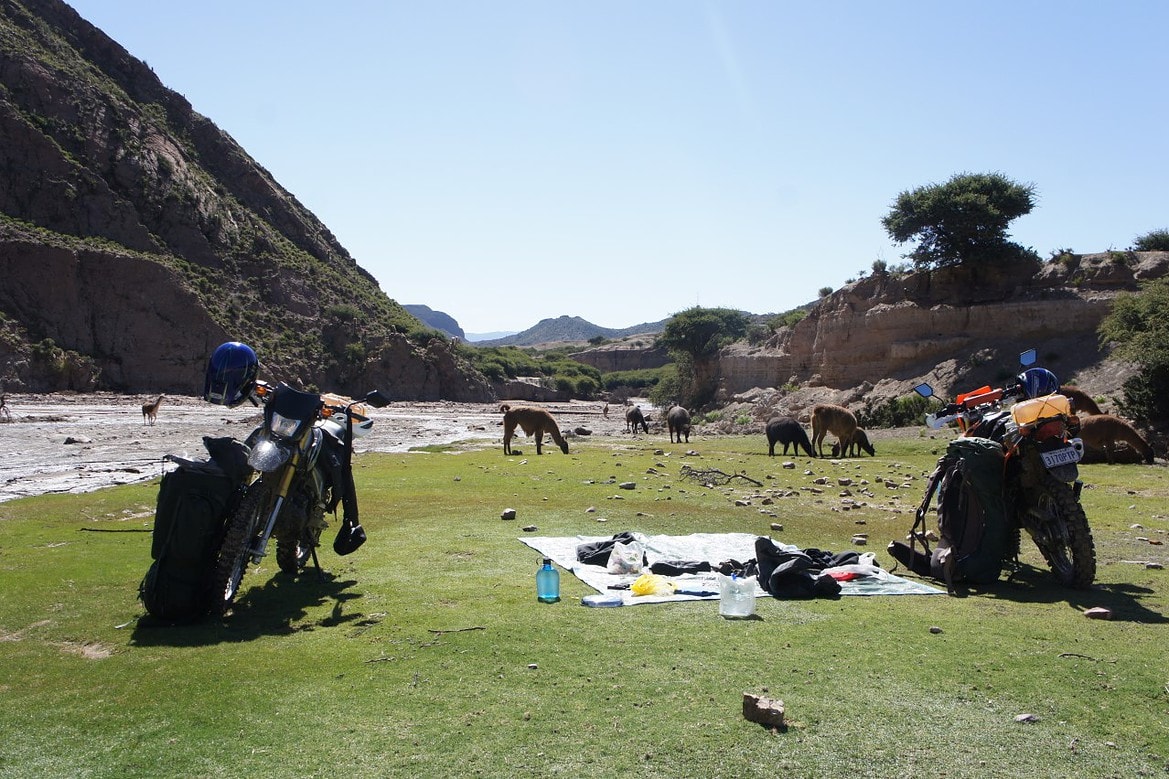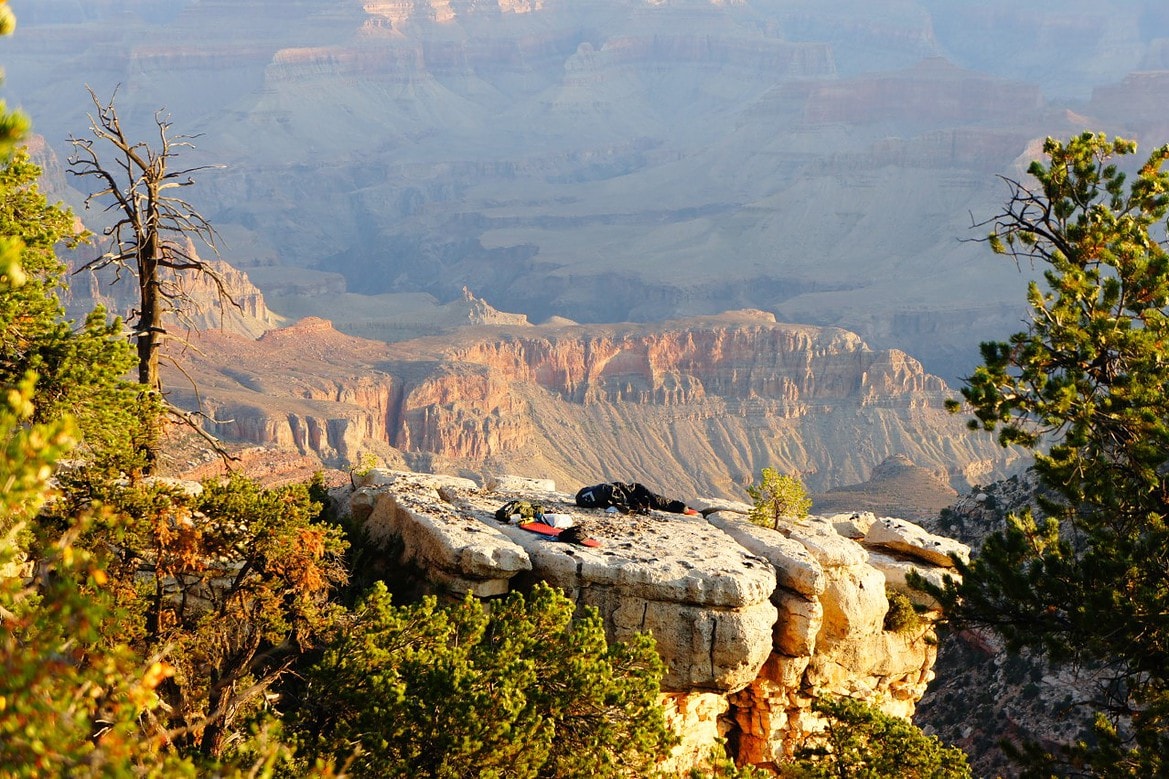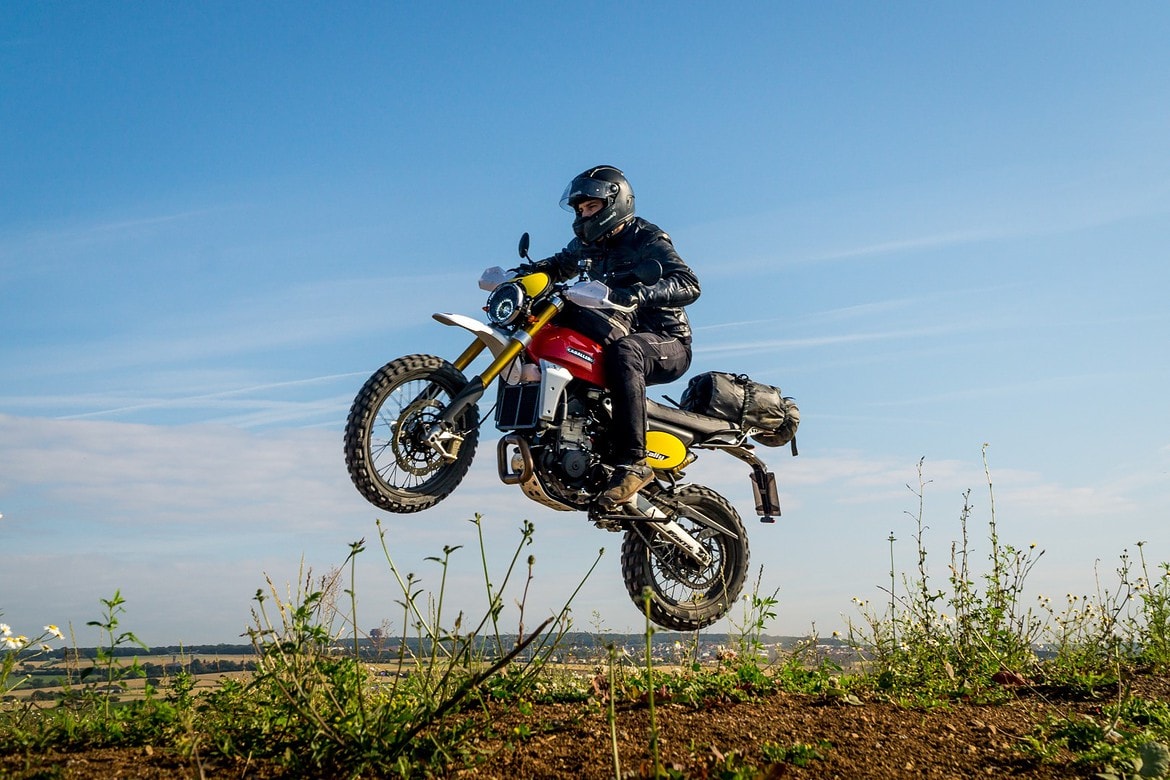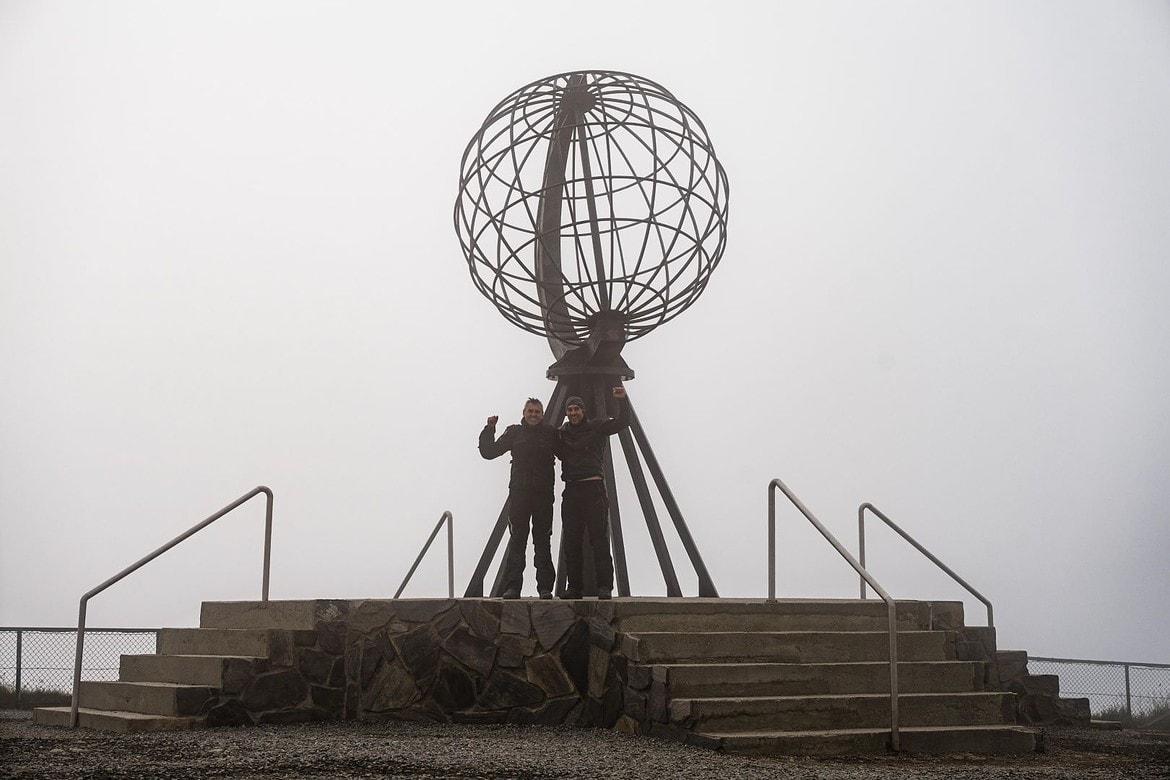On our travels, we like to spend the night outside in the great outdoors. This allows us to freely determine the place and time, which on the one hand offers flexibility, but in most cases simply gives us beautiful and unique places to stay overnight.
A ruined house may not be posh, but occasionally an “interesting” place to spend a night. Even nicer, of course, is an open field, at the edge of which we spread out our sleeping bags under an old oak tree. Listening to the wind as it strokes through the treetops. Then the next morning we are awakened by the warming rays of the sun winking through the meadow grass.Even if a long rainy ride has shown us the dark side of engine, moisture and cold has already penetrated to the last layer, it does not stop us from looking for a shelter in the open air. Often we found a shelter in the forest, completely soaked and in the dark, and could warm body and soul at a crackling campfire.
However, the most beautiful form of a bivouac is usually found on a peak. A night camp at 4,500 meters in the Andes provides us with an incomparable starry sky, which also comforts us over the shivering cold. If you don’t want to travel that far, you can try the Cime de la Bonette at almost 3,000 meters in the French Alps. Here a 360° panorama is waiting to be marveled at and photographed.
In addition to the mostly very beautiful moments of the plant and geographic world, there are of course also encounters with animals again and again. While a tarantula sat on our Luggage bag when we woke up in Peru in the morning, such unpleasant surprises remain the exception rather than the rule. Wild boars are usually very curious fellows, but so far they have always kept their distance. In France, we were awakened at night in a large meadow by a white horse grazing peacefully next to our heads. More often, however, we were greeted the next morning by the bleating of goats or sheep , which are basically peaceful comrades. Quite in contrast to the annoying street dogs that can be found in all corners of the world and usually show up in the middle of the night to rob you of your sleep.
Such unwanted encounters are part of seeing something of the world. If you want to go to Canada, you can expect to encounter bears , but you probably won’t have to worry as much about being surprised at night by hikers, busybodies or property owners.
The human factor is probably also the one that is hardest to calculate for bivouacs. Nevertheless, we have had many beautiful encounters with the people of this world: In France, we were already supplied with croissants after a soaked night, in a shelter in the forest. The nice Frenchman drove especially to the next hostel to sweeten our morning with “Pain au Chocolat”.
Nevertheless, we strive to choose our sleeping place as unobserved and away from human gatherings as possible. Neither do we want to cause offense to anyone, nor do we want to be disturbed ourselves. Even if there are exceptions, the encounters with other people are almost always friendly and interesting. By now we have developed quite a good instinct, which usually gets us an excellent place in the “thousand star hotel” and at the same time guarantees peace and seclusion.
If it should come then nevertheless times to an encounter with a human soul it is called: Smile and wave! A laugh is often returned, even if you don’t speak the local language. Of course, it’s also helpful if you haven’t cut down two more trees for your camp beforehand and spread your beverage cans in a large radius around it. It goes without saying that we leave as few traces as possible.
Such unwanted encounters are part of seeing something of the world. If you want to go to Canada, you can expect to encounter bears , but you probably won’t have to worry as much about being surprised at night by hikers, busybodies or property owners.
The human factor is probably also the one that is hardest to calculate for bivouacs. We have already had many beautiful encounters with people in this world and have even been supplied with croissants in France after a soaked night in a shelter in the forest. The nice man took a half hour drive to sweeten our morning with “Pain au Chocolat”. Nevertheless, we strive to choose our sleeping place as unobserved and away from human gatherings as possible. Neither do we want to cause offense to anyone, nor do we want to be disturbed ourselves. Even if there are exceptions, the encounters with other people are almost always friendly and interesting. By now we have developed quite a good instinct, which usually gets us an excellent place in the “thousand star hotel” and at the same time guarantees peace and seclusion.
If it should come then nevertheless times to an encounter with a human soul it is called: Smile and wave! A laugh is often returned, even if you don’t speak the local language. Of course, it’s also helpful if you haven’t cut down two more trees for your camp beforehand and spread your beverage cans in a large radius around it. It goes without saying that we leave as few traces as possible.
About the technique
The simplest version of our bivouac is a tarp on the ground. Then on top of it sleeping pad (optional), sleeping bag – ready. The canopy of the sky serves as the tent:
If it’s not cold enough, there’s no wind or not enough elevation, we often have to break out the mosquito net to be protected from bites or other nuisances. Just throw a Motorcycle to the left and right of the tarp, net over it – done. The net also helps to some extent against crawlers near the ground. A brief insight can be found on ►
YouTube
If it is already raining, or if moisture threatens during the night, a tarp is placed over the motorcycles (if necessary, simply over the mosquito net) and braced. This way you are protected from dew or rain from above, but still have a clear view into the field. Admittedly: You can’t survive several hours of heavy rain underneath it unscathed.
With this technique we have found the optimal way to travel for us. We do not need a bulky tent and the camp is set up and also dismantled in a few minutes. Of course, this means that a place of retreat is missing, which can be very important, especially when traveling for several months in unfamiliar areas. Also, sleeping without a tent at a campsite is not an option. We are exposed to the weather, to nature, to the land and to the people without a (mainly psychological) protective intermediate layer of taut fabric. Comparable to riding a motorcycle itself: An experience, often outside the comfort zone.
Equipment
We have compiled a packing list of our most important travel utensils here:

